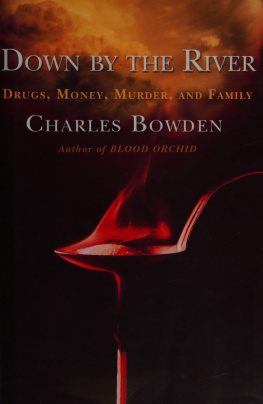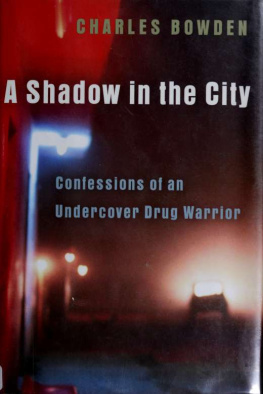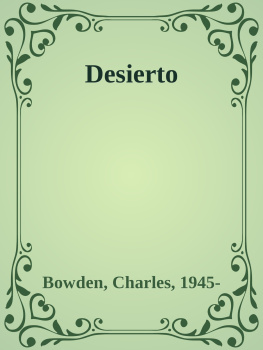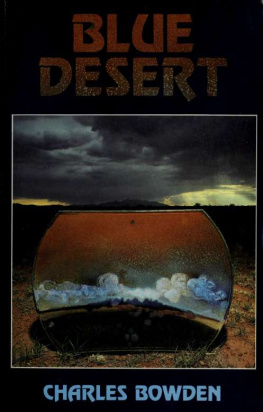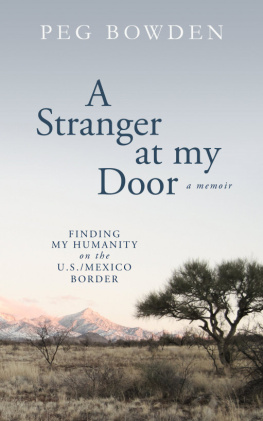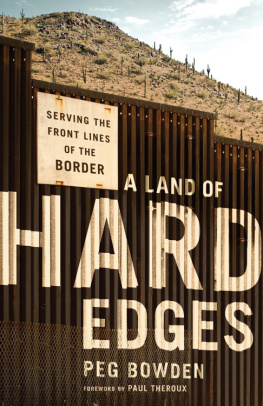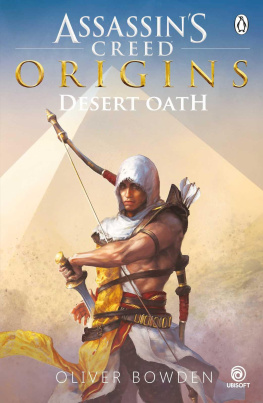Charles Bowden - Mezcal
Here you can read online Charles Bowden - Mezcal full text of the book (entire story) in english for free. Download pdf and epub, get meaning, cover and reviews about this ebook. year: 2020, publisher: University of Texas Press, genre: Detective and thriller. Description of the work, (preface) as well as reviews are available. Best literature library LitArk.com created for fans of good reading and offers a wide selection of genres:
Romance novel
Science fiction
Adventure
Detective
Science
History
Home and family
Prose
Art
Politics
Computer
Non-fiction
Religion
Business
Children
Humor
Choose a favorite category and find really read worthwhile books. Enjoy immersion in the world of imagination, feel the emotions of the characters or learn something new for yourself, make an fascinating discovery.

- Book:Mezcal
- Author:
- Publisher:University of Texas Press
- Genre:
- Year:2020
- Rating:4 / 5
- Favourites:Add to favourites
- Your mark:
- 80
- 1
- 2
- 3
- 4
- 5
Mezcal: summary, description and annotation
We offer to read an annotation, description, summary or preface (depends on what the author of the book "Mezcal" wrote himself). If you haven't found the necessary information about the book — write in the comments, we will try to find it.
A reissue from the author of Blue Desert and The Red Caddy that charts the disintegration of the land, the loss of friends to drugs, and the decline of American innocence.
Mezcal — read online for free the complete book (whole text) full work
Below is the text of the book, divided by pages. System saving the place of the last page read, allows you to conveniently read the book "Mezcal" online for free, without having to search again every time where you left off. Put a bookmark, and you can go to the page where you finished reading at any time.
Font size:
Interval:
Bookmark:
ALSO BY CHARLES BOWDEN
Killing the Hidden Waters (1977)
Street Signs Chicago: Neighborhood and Other Illusions of Big-City Life, with Lewis Kreinberg and Richard Younker (1981)
Blue Desert (1986)
Frog Mountain Blues, with Jack W. Dykinga (1987)
Trust Me: Charles Keating and the Missing Billions, with Michael Binstein (1988)
Red Line (1989)
Desierto: Memories of the Future (1991)
The Sonoran Desert, with Jack W. Dykinga (1992)
The Secret Forest, with Jack W. Dykinga and Paul S. Martin (1993)
Blood Orchid: An Unnatural History of America (1995)
Chihuahua: Pictures From the Edge, with Virgil Hancock (1996)
Stone Canyons of the Colorado Plateau, with Jack W. Dykinga (1996)
Jurez: The Laboratory of our Future, with Noam Chomsky, Eduardo Galeano, and Julin Cardona (1998)
Eugene Richards, with Eugene Richards (2001)
Down by the River: Drugs, Money, Murder, and Family (2002)
Blues for Cannibals: The Notes from Underground (2002)
A Shadow in the City: Confessions of an Undercover Drug Warrior (2005)
Inferno, with Michael P. Berman (2006)
Exodus/xodo, with Julin Cardona (2008)
Some of the Dead Are Still Breathing: Living in the Future (2009)
Trinity, with Michael P. Berman (2009)
Murder City: Ciudad Jurez and the Global Economys New Killing Fields, with Julin Cardona (2010)
Dreamland: The Way Out of Jurez, with Alice Leora Briggs (2010)
The Charles Bowden Reader, edited by Erin Almeranti and Mary Martha Miles (2010)
El Sicario: The Autobiography of a Mexican Assassin, with Molly Molloy (2011)
The Red Caddy: Into the Unknown with Edward Abbey (2018)
Dakotah (2019)
MEZCAL
CHARLES BOWDEN

UNIVERSITY OF TEXAS PRESS
AUSTIN

Copyright 1988 by Charles Bowden
The Charles Clyde Bowden Literary Trust
Mary Martha Miles, Trustee
All rights reserved
The first edition of Mezcal was published in 1988 by the University of Arizona Press.
Requests for permission to reproduce material from this work should be sent to:
Permissions
University of Texas Press
P.O. Box 7819
Austin, TX 78713-7819
utpress.utexas.edu/rp-form
Library of Congress Cataloging-in-Publication Data
Names: Bowden, Charles, 19452014, author.
Title: Mezcal / Charles Bowden.
Description: Austin : University of Texas Press, [2020] | The first edition of Mezcal was published in 1988 by the University of Arizona Press.
Identifiers: LCCN 2019034592 (print) | LCCN 2019034593 (ebook)
ISBN 978-1-4773-2024-2 (paperback)
ISBN 978-1-4773-2025-9 (library ebook)
ISBN 978-1-4773-2026-6 (non-library ebook)
Subjects: LCSH: Bowden, Charles, 19452014. | NatureEffect of human beings onSouthwest, New. | DesertsSouthwest, New. | Southwest, NewDescription and travel.
Classification: LCC F787 .B682 2020 (print) | LCC F787 (ebook) | DDC 979dc23
LC record available at https://lccn.loc.gov/2019034592
LC ebook record available at https://lccn.loc.gov/2019034593
doi:10.7560/320242
For Julian Hayden and Lawrence Clark Powell
two people who showed me the way to come home.
Surely I am more brutish than any man,
and have not the understanding of a man.
I neither learned wisdom,
nor have the knowledge of the holy.
Who hath ascended up into heaven, or descended?
Who hath gathered the wind in his fists?
PROVERBS 30:24
CONTENTS
OPEN THE BOTTLE
I can remember the world before television. I am writing this sentence on a computer. I was born in an eighty-year-old Illinois stone house seventeen days before the atomic bomb fell on Hiroshima. The stove was wood, the toilet a privy, and carp jumped in the creek. My father planned to be buried in the front yard. He sold the ground, for a great profit, and eventually the place was leveled and made into a golf course for local executives.
I moved to the south side of Chicago at age three, escaped to the Southwest at age twelve. For my entire life I have hungered for the smell of earth and lived on carpets of cement and asphalt.
I drive fast given a good car. Speed has always been my addiction, and the velocity of things has yo-yoed me across the continent. I will never live in a stone house or believe I can be buried in the front yard.
Millions of people have lives with a similar shape, the odyssey of the generation birthed in the last great war and shipped forward into the flood tide of post-war prosperity. For us Mississippi is more than a place, the sixties is a crucible, and the panting of the earth the cry of a lover scorned and yet yearned for. We are the song of the electric guitar.
We swallowed whole the resources of the planet and accelerated to new screams of speed. And found the experience irresistible and yet wanting. Our parents were, of course, always wrong. But we are no longer children.
In my schooling, I was told about Americas antiurbanism, about our pastoral dreams, about the machines in our gardens. I was told as a people we had a habit of trashing intellectuals and shrinking from the touch of modern ways. All this is well and good. I have spent my life in cities and am intoxicated by the fierceness of such places. And I have always felt something missing that led me back to empty, wild places. I have been told this is a romantic flaw in my character and the character of my countrymen. I disagree.
I think this is our character.
Sometimes I have this daydream. The Corvette is white and very fast and moves through the desert night, the asphalt singing beneath the wheels. The air is hot, the windows rolled down, rock n roll roars from fine speakers. I turn the wheel and careen off into the desert. She does not even raise her voice, she is a smile, the hair carelessly blowing in the wind, the eyes staring past me into the black velvet of the night. The car bucks and dives and then lifts off and flies airborne, finally burying itself in the sand and rock. The engine dies. I revive and there is the silence of the desert night spiked by the scream of rock n roll. I reach over to caress her, the lips are full. We undress and wait for a coyote dawn. This is not a nightmare. This book springs from within that idle dream.
I am almost incapable of regret. But I can reflect and think back at times. Then I drink mezcal, a cheap distillate of the agave with a worm in the bottom of the bottle. The liquor is yellow and smooth and powerful. And at the bottom, of course, is the worm, a slumbering, fleshy snippet of once living rope.
I always finish the bottle.
Charles Schmid is short, silent, muscular. He bends over the hand torch in shop class. During the test in gym, he did 500 sit-ups before being interrupted by the bell for the next class. The hair is black, cut long, a dwarf Tarzan. He flunks and repeats a year of high school. I see him hanging from the rings in the gym doing the iron cross. He is the star of the team. He is the outsider in the high school world of the early sixties.
I am working at a restaurant on Broadway. Susan is a waitress, her hair a huge black beehive. She is very alive, the moves quick, the laugh a bite of energy, and I want her. Charlie comes in after midnight trailed by young girlsthey look to be thirteen or fourteen. His hair is dyed an even deeper black now, makeup frames his eyes, and crushed tin cans in his boots give him a little more height. I am washing dishes and I come out front and there he is, whispering, giggling.
Next pageFont size:
Interval:
Bookmark:
Similar books «Mezcal»
Look at similar books to Mezcal. We have selected literature similar in name and meaning in the hope of providing readers with more options to find new, interesting, not yet read works.
Discussion, reviews of the book Mezcal and just readers' own opinions. Leave your comments, write what you think about the work, its meaning or the main characters. Specify what exactly you liked and what you didn't like, and why you think so.

